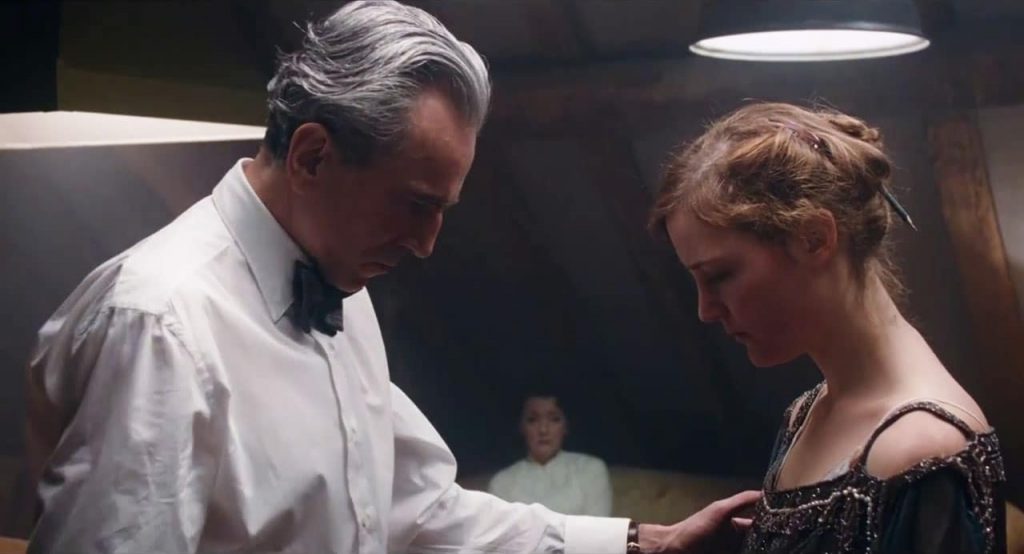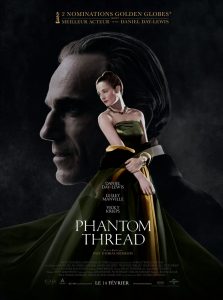Written and Directed by Paul Thomas Anderson | 130 min
Having seen what is reportedly the final performance of Daniel Day-Lewis on screen, I can say with some confidence he goes out having maintained a standard to which few others can compare. He’s earned three Academy Awards, his creative instruments have been honed through years of great, diverse work. Here he brings another symphony of subtle details to a prickly character, the wonderfully named Reynolds Woodcock, which could very well earn him another Oscar nod. We’ll find out on Tuesday.
What makes this performance particularly special is he doesn’t run roughshod over his co-star, which has happened in previous films—Day-Lewis’ method-y madness can be overpowering of other performers. Just try to pay attention to Leonardo DiCaprio in The Gangs Of New York when the Irish master is onscreen. Here Day-Lewis is paired with Vicky Krieps, an actor from Luxembourg whose work is new to me. She matches him move for move.
How this fits into the oeuvre of PT Anderson, I’d compare it to Punch Drunk Love, the closest he’s come to a traditional romance. Like that film, it explores an unorthodox connection with a peculiar power dynamic. This isn’t nearly as broadly funny, instead occasionally spiked with a dry, undercurrent of wit.
Reynolds Woodcock is a successful fashion designer in London of the 1950s. He’s particular to a fault, though his overbearing behaviour is tolerated and even indulged by his professional partner, his sister, Cyril (Lesley Manville). When Woodcock takes a break from the city he meets Alma (Krieps), a server at a restaurant he frequents. He sweeps her off her feet, immediately asking if she can “help him with something.” He wants to design a dress for her, which flatters her. But when she moves into his home in London, she starts to feel like an accessory, someone who is only there at his convenience. What unfolds goes deep into both characters’ complexities, their needs, and how power and vulnerability shifts between them.
As usual, Anderson impresses with his care to detail as a director—the delicate construction and editing, the movement of the camera, and the fine work from frequent composer Jonny Greenwood, whose pastoral, romantic orchestral pieces here are a universe away from his work in Radiohead. Mark Bridges’ costumes are wonderful, and anyone interested in frocks from the period are likely to be dazzled.
My cinepanion and I left the cinema feeling a little unsettled, which isn’t an unusual sensation when digesting a PT Anderson. It was certainly how I felt after Inherent Vice, The Master, and There Will Be Blood, all films I’ve promised myself I would revisit to try and deconstruct, but rarely feel inclined to do so. There can be no doubt of the restless, impressive intelligence in Anderson’s work, but it’s also a cleverness that sometimes can work against the telling of a satisfying story. He’s warmed up to some cold, unpleasant characters.
There’s a bit of a Hitchockian twist in the final minutes of Phantom Thread that put a smile on my face, but I wondered what this film would’ve been like if that reveal had come in its second act, leaving the leads dealing with its ramifications for another 30 minutes.
Maybe I was left wanting just a little more from the picture, which isn’t necessarily a bad thing.












